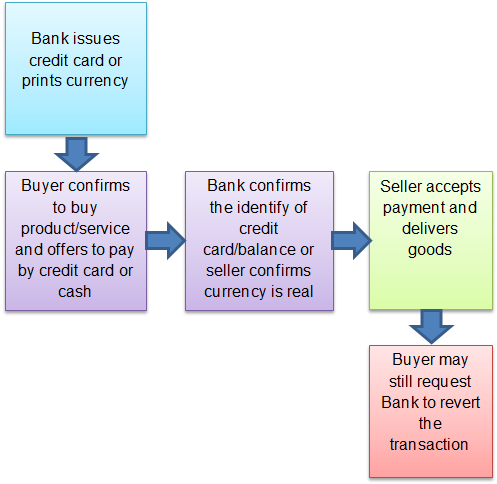Bitcoin is a currency that most of the world population has not heard of, let alone used it. This currency holds the value similar to prevalent world currencies and yet it is not issued by any government or central authority such as United Nations.
What is Bitcoin?
 Bitcoin is a digital currency that is not controlled by any central authority but by many peers (Computers, Laptops, mobile phone, web servers) around the world. The identity of each unit of currency is kept secure and unique by cryptography. Bitcoin can be used to buy goods/services, donate to charity or exchange to get conventional currency. However, most of the merchants that I noticed seem to sell Bitcoins for conventional cash.
Bitcoin is a digital currency that is not controlled by any central authority but by many peers (Computers, Laptops, mobile phone, web servers) around the world. The identity of each unit of currency is kept secure and unique by cryptography. Bitcoin can be used to buy goods/services, donate to charity or exchange to get conventional currency. However, most of the merchants that I noticed seem to sell Bitcoins for conventional cash.
How does Bitcoin work?
- A person needs to create his wallet using his personal computer, mobile phone or web based methods. Wallet is a software that keeps your Bitcoins and confirm transactions performed by others over the network.
- Peers confirms a transaction
- When a person pays another person through his Bitcoins, he sends the message to the whole network.
- Peers downloads the string of message and subsequent messages gets added to this list.
- Peers accept the longest chain that has all the previous transactions.
- The longest chain that is voted by most of the peers as correct ensures that all the contained transactions are correct.
- Subsequent transactions are added after the previous transaction and the chain grows.
- The payee cannot use the same coin to pay to another merchant because that coin would already show used by most of the peers. If payee needs to commit a fraud by using the same identity of Bitcoin to pay to another merchant then he will need to undo the transactions that have happened after his transaction on majority of the peer machines.

Payment Via Conventional Currency

Payment Via Bitcoin
Pros and Cons
Pros
- Transactions can occur anonymously. Since payment cannot be reversed, seller need not know the identity of buyer and transaction can be held anonymously.
- Cost of printing and circulation of currency is not borne by an individual or authority.
- Inflation of Bitcoin is same throughout the world because this is a global currency.
- Since identity of coin is controlled by cryptography and thousands of computers around the world, chances of fake currency is very low. The original research paper for Bitcoin currency shows that probability of fake currency is nil.
Cons
- Cost of computing power and electricity is borne by individuals.
- Bitcoin is not acceptable or not clearly defined as acceptable by many countries.
- Bitcoin is considered to be the currency that is mostly used for illegal items such as narcotics, pornographic material or gambling.
How do you get Bitcoin?
Everytime a peer confirms a transaction over the network, peer gets a credit in terms of Bitcoin. Peer does not get one Bitcoin in credit and it is tiny fraction of Bitcoin. However, over the long time this tiny fraction can add up to substantial amount.
Where can I spend Bitcoin?
There are a number of merchants that accept Bitcoin. However, when I went through the list of merchants I noticed only one known merchant wordpress.com.
Is Bitcoin allowed in India?
The post Reserve Bank of India regulations on Bitcoin in India suggests that there is no clear term set for use of Bitcoin in India. However, it does not come under foreign exchange and it is not issued by Reserve Bank of India so its legality is in grey area.

Pingback: Big Data, Big Opportunity » FinHow
Pingback: How does Bitcoin ATM Work? » FinHow